Robert F. Kennedy Jr. has been shouting that vaccines cause autism, sparked the 1918 Spanish flu, and are behind a “60 % chronic‑disease epidemic” in kids. The short answer? Every major health agency and countless fact‑checkers say those claims are false. In the next few minutes we’ll break down exactly what he says, why the science disagrees, and what his new role as Health and Human Services secretary could (or could not) change for you.
Stick around and you’ll walk away with a clear picture of the real risks and benefits of vaccines, a handy checklist for spotting trustworthy health information, and a few surprising stories that show why the truth matters.
Overview of Kennedy’s Narrative
What are the core claims?
Kennedy’s talking points usually cluster around four ideas:
- Measles‑MMR vaccine causes autism.
- The 1918 Spanish‑flu pandemic was started by experimental vaccines.
- Modern vaccines have created a “60 % chronic‑disease epidemic” among children.
- Vaccines have invented diseases like HIV, Lyme, and RSV.
Why do they keep resurfacing?
He rolls them out in high‑energy videos (the “Who is Bobby Kennedy?” clip that FactCheck.org called “irrefutable facts”), on podcast stages, and now in policy speeches. The combination of a familiar family name, a dramatic narrative, and the fear‑based language “irrefutable facts” makes them spread like wildfire on social platforms.
Fact‑checkers weigh in
Multiple reputable sources have labeled each claim as misleading or outright false:
- FactCheck.org, Snopes, and Reuters have debunked the autism link (FactCheck.org).
- Snopes traced the Spanish‑flu claim to a debunked meningitis‑vaccine conspiracy (Snopes).
- CDC data show only about 20 % of U.S. children have a diagnosed chronic condition, far from Kennedy’s 60 % figure (CDC).
Scientific Consensus
Vaccine safety
When you hear “vaccine safety,” think of a massive, ongoing monitoring system. The CDC’s Vaccine Adverse Event Reporting System (VAERS) collects reports from millions of doses each year, and the Vaccine Safety Datalink continuously analyzes them. The bottom line? Serious adverse events are extremely rare—roughly one anaphylaxis case per million doses. For a deeper dive, check our vaccine safety guide.
Vaccine effectiveness
Effectiveness means “does the shot do what it promises?” The numbers speak loudly. The measles component of the MMR vaccine prevents about 97 % of cases, and COVID‑19 boosters have cut severe illness by 80‑90 % against most variants. If you’re curious about the latest data, our vaccine effectiveness page breaks it down in plain language.
Known side effects
Most side effects are mild—sore arm, low‑grade fever, a little fatigue. These are signals that your immune system is learning. Rare events like Guillain‑Barré syndrome happen at about one in a million, and the risk of serious disease (e.g., measles complications) is far higher. Learn more about the real side‑effect profile in our vaccine side effects article.
Deep‑Dive Into Specific RFK Jr Claims
Measles Vaccine ↔ Autism
Kennedy often says, “Kids who get the measles vaccine are more likely to develop autism.” The claim first sprang from a retracted 1998 Lancet paper. Since then, >30 large studies—including a 2002 NEJM analysis of over 500,000 children—found no link whatsoever. The 2019 JAMA Network meta‑analysis confirmed this result across multiple continents. This isn’t just academic nit‑picking; the false link fueled the 2020 Samoa measles outbreak, which tragically claimed 83 lives after vaccine uptake plummeted (FactCheck.org).
1918 Spanish Flu ↔ Vaccine Research
In June 2023 and again in June 2024, Kennedy claimed to have “strong evidence” that a vaccine trial sparked the Spanish flu. The story is a classic meme: a 1918‑era meningitis‑vaccine trial at Fort Riley, Kansas, has been repeatedly debunked as the cause of the first U.S. flu cases. Modern virology shows the pandemic was caused by an H1N1 influenza virus that emerged naturally—vaccines didn’t even exist until the 1930s (Snopes).
“60 % Chronic‑Disease Epidemic” in Children
Kennedy’s campaign website claims that when his grandfather was president, only 6 % of kids had chronic conditions, and now the figure is 60 %. The CDC reports about 20 % of U.S. children have a diagnosed chronic disease (asthma, diabetes, autism, etc.). The jump in prevalence is real but driven by better diagnosis, broader definitions, and environmental factors—not by vaccines. No peer‑reviewed study backs Kennedy’s 60 % number.
Vaccines Created HIV, Lyme, RSV
Rolling Stone reported Kennedy saying vaccines gave us HIV, Lyme disease, and RSV. History tells a different story: HIV was identified in the early 1980s, decades after the first vaccine trials; the bacterium that causes Lyme disease was isolated in 1975; RSV was first described in 1956—well before modern vaccine platforms existed. These timelines easily refute the claim (Rolling Stone).
What Could Change As HHS Secretary?
Authority of the HHS Secretary
The Secretary runs the CDC, FDA, and NIH, so the role can shape vaccine recommendations, funding, and public‑health campaigns. In theory, Kennedy could push for softer school‑entry mandates or prioritize “vaccine‑choice” legislation.
Built‑in checks and balances
Congress controls the budget, the courts can review agency actions, and international bodies like the WHO set global standards. Even a determined secretary would face legal and political hurdles before overturning decades‑long safety protocols.
Why you should care
If policy shifts toward weaker mandates, we could see lower vaccination rates and a greater chance of outbreaks—think again about Samoa. Staying informed helps you advocate for science‑based policies in your community.
How to Evaluate Vaccine Information (EEAT Checklist)
Expertise
Check if the author has a relevant degree (MD, PhD, MPH) or works for a recognized institution (CDC, WHO, academic hospital).
Experience
Look for a track record of peer‑reviewed publications, citations in reputable journals, or years of work in public health.
Authority
Prefer sources that cite major agencies, credible fact‑checkers, or well‑known scientific bodies. The vaccine myths page uses exactly that approach.
Trustworthiness
Transparent sourcing, no hidden sponsors, and a balanced view of both benefits and risks are hallmarks of trustworthy content. When a piece only highlights “vaccine dangers” and ignores benefits, it’s a red flag.
Practical tip
Whenever you see a claim, ask: “Who is saying this? What evidence do they provide? Does a reputable organization agree?” If you’re stuck, our vaccine safety guide is a quick reference.
Frequently Asked Questions (Featured‑Snippet Friendly)
Do measles vaccines cause autism?
No. Over 30 large studies show no causal link. The original claim was based on a retracted paper and has been disproven repeatedly (FactCheck.org).
Did vaccines cause the 1918 Spanish flu?
No. The pandemic was caused by an H1N1 influenza virus; vaccines did not exist at that time. The claim originates from a debunked conspiracy (Snopes).
Is it true that 60 % of U.S. children have chronic disease?
No. The CDC reports roughly 20 % have a diagnosed chronic condition. Kennedy’s number lacks any credible source.
Can the HHS Secretary ban vaccine mandates?
Only partially. The secretary can propose new policies, but Congress controls funding and the courts can block actions that conflict with existing law.
Where can I find reliable vaccine safety data?
The CDC’s Vaccine Safety Datalink, WHO’s Global Vaccine Safety Initiative, and our vaccine safety page are excellent starting points.
Quick‑Reference Comparison Table
| Claim | Source (Kennedy) | Scientific Verdict | Key Reference |
|---|---|---|---|
| Measles‑vaccine → autism | Video & speeches (2023) | False – no causal link | FactCheck.org |
| Vaccines caused 1918 Spanish flu | Interviews (2023‑2024) | False – pandemic caused by H1N1 virus | Snopes |
| 60 % of children have chronic disease | Campaign website | False – CDC ≈ 20 % | CDC |
| Vaccines created HIV, Lyme, RSV | Rolling Stone article (2023) | False – pathogens identified before modern vaccines | Rolling Stone |
Conclusion
Robert F. Kennedy Jr.’s vaccine claims sound dramatic, but the evidence repeatedly shows they’re unfounded. Vaccines remain one of the safest, most effective public‑health tools we have—protecting us from measles, COVID‑19, polio, and countless other diseases. While his new position as HHS secretary could shift the tone of future messaging, the built‑in scientific and legal safeguards mean that the cornerstone of vaccine policy is unlikely to crumble overnight.
When you encounter a bold claim, remember the EEAT checklist: look for expertise, experience, authority, and trustworthiness. And whenever you’re unsure, turn to reliable sources like the CDC, WHO, or trusted fact‑checkers. Your health decisions—and those of the people you love—deserve nothing less than the truth.

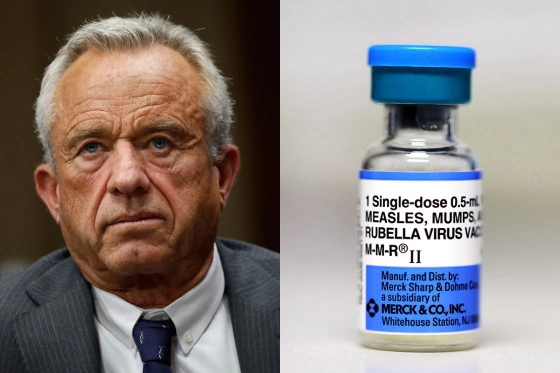


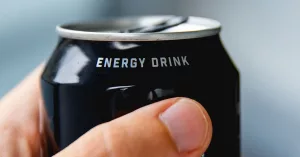
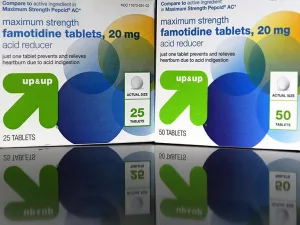








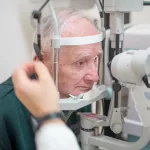


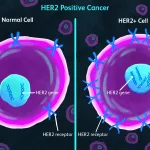




Leave a Reply
You must be logged in to post a comment.